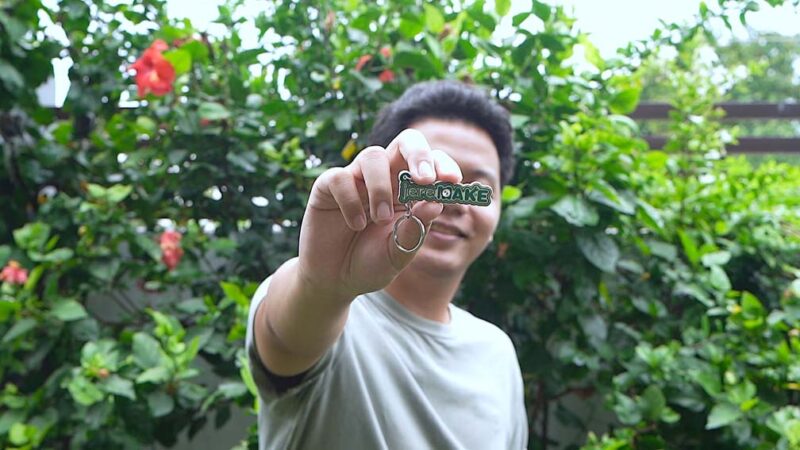Hope of Make-roscope: Keychain for microscience lovers
By Xy Aldrae Murillo
 |
| PHOTO: DOST-TAPI |
For most cases, microscopic objects are overlooked, underappreciated, and seen as literally “small things.” The idea that a cell is the smallest unit of life is being stuck as a fundamental concept of biology. But this idea is not studied enough for academic students since microbiology is less visually-feasible to study without actual microscopes.
Perhaps this new invention can solve the problem. A keychain with a single-lensed microscope, a great alternative for a costly, bulky, and complex light compound microscope!
This is the newest invention of Jeremy de Leon, a graduate of Manufacturing Engineering from Mapua Institute of Technology and the founder of JereMake, nicknamed Make-roscope Keychains.
“Make-roscope Keychains can magnify samples from 265 to even 400 times,” de Leon said, explaining the intensity that this Make-roscope magnifies objects. Imagine a 0.45 millimeter object being possible to be seen with the keychain microscope.
The DOST-TAPI, in line with de Leon’s invention, has also funded the production of these keychains, such as the obtaining of raw materials, assembly and packaging of it, and distribution and testing of the product from governing bodies.
Mirielle Vacal of DOST-TAPI said through BusinessMirror that the said institute gave the project a grant of P123,150 under its Invention-Based Enterprise Development (IBED) Program. Moreover, Vacal added seven months of duration starting in December 2021 was given after DOST-TAPI approved the project.
In the JereMake website, they celebrated the Make-roscope Initiative 2022 last April 13 this year for achieving the goal of distributing around 1,000 keychain microscopes nationwide.
“Last April 13, 2022, [idiniwang] natin ang Make-roscope Initiative 2022. Kung sa’n nakapagbigay na tayo ng 1,000 Keychain microscopes sa 11 groups sa buong Pilipinas. Namangha tayo sa mga output ng bawat group. Mas na-appreciate nila ang science kahit wala sila sa laboratory. May mga student na [magagamit] ito sa research or thesis,” the website quoted.
“Hindi natin ito magagawa kung may passion lang tayo tumulong. Para ma-actualize ang passion na ito, kailangan may malinaw at attainable na policies at programs tayo na pwede ma-tap. Kaya lubos ang pasasalamat ko sa DOST-TAPI dahil may nakahain silang programa para sa individual innovators at inventors,” the website concluded.
This invention could really be a nice souvenir and also a tool for students, when they have to do practical activities that include uses of microscopes to study specimens in particular biology and microbiology subjects.
Furthermore, with the pandemic restricting students to go to laboratories and schools, it is seemingly difficult to afford laboratory equipment to each student, and to visualize discussions where lecture materials provided are only through videos, images, and virtual simulations.
The invention of the microscope paved the way for the development of biology that science has now, and through maximizing the enhancement of Filipinos' minds in studying biology and science, in general, resources should be optimally established through every learner.
Filling out the curiosity and the search for development in scientist’s minds about anything they see in this world and about every idea about life that is introduced to them, microscopic objects are one of these things that they would love to examine more.
With the Make-roscope, other innovations, and the continuous development of science and technology, hope can still be managed to pull through amid the existing pandemic, since the progressive studying of science can help eradicate this almost three-year crisis.
